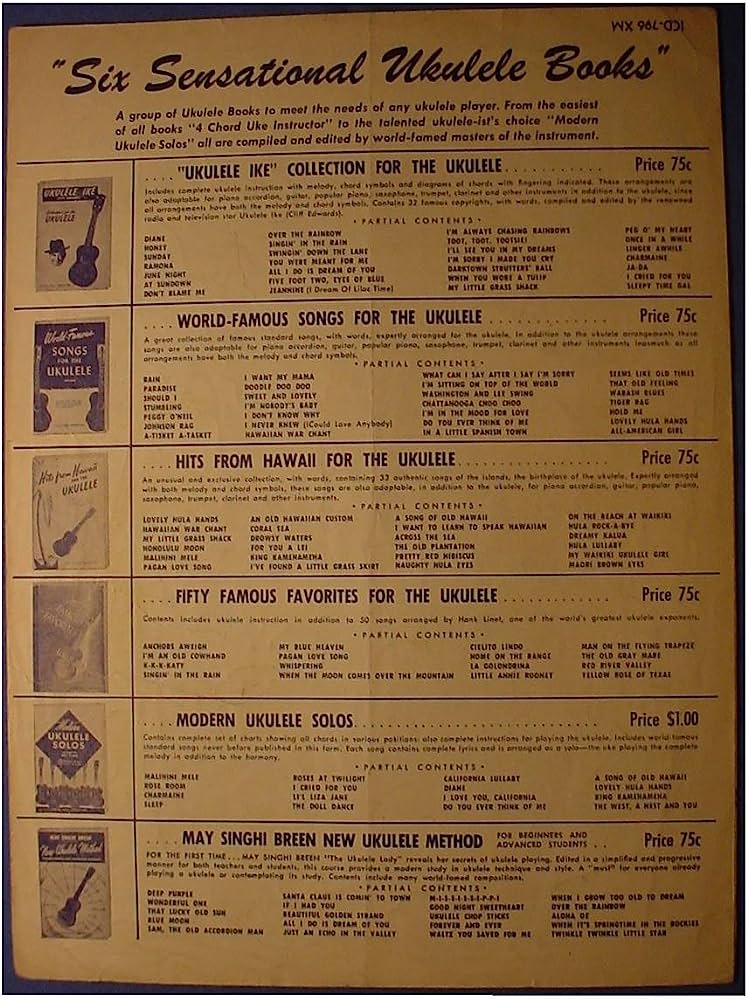Piano modern music showcases contemporary styles and techniques, pushing the boundaries of traditional piano music. In the world of music, the piano has a rich history and has evolved to incorporate various genres and styles.
Today, piano modern music represents a departure from traditional classical compositions, embracing innovative techniques, harmonies, and rhythms. This genre includes experimental, avant-garde, jazz, rock, pop, and many other contemporary styles. Piano modern music often features unconventional approaches to playing the instrument, such as prepared piano (altering the sound by placing objects on or between the strings) or extended techniques like plucking or strumming the strings inside the piano.
Composers and performers in this genre strive to create fresh and unique sounds, exploring new sonic possibilities. With its versatility and ability to adapt to different styles, the piano continues to be a vital instrument in the modern music landscape. As pianists and composers continue to push boundaries and experiment with new ideas, piano modern music remains an ever-evolving and exciting genre.

Credit: www.amazon.com
Exploring The Impact Of Expertly Composed Melodies
Piano Modern Music: Exploring The Impact Of Expertly Composed Melodies
The evolution of piano music has witnessed countless changes over the years, paving the way for the birth of piano modern music. It is within this realm that expertly composed melodies have left an indelible mark, revolutionizing the way we perceive piano music.
In this section, we will delve into the evolution of piano music and the crucial role played by expertly composed melodies in shaping the landscape of piano modern music.
Evolution Of Piano Music
- Classical roots: The foundations of piano music can be traced back to the classical era, where composers like mozart and beethoven set the stage for innovation. The artistry and craftsmanship of these composers continue to inspire modern piano musicians.
- Romantic flourish: The romantic period ushered in a new wave of expressiveness and emotion in piano music. Composers like chopin and liszt embraced grandiose melodies and intricate harmonies, pushing the boundaries of what could be achieved on the piano.
- Jazz influence: The integration of jazz elements into piano music brought about a fresh perspective. Pioneers like duke ellington and thelonious monk merged traditional piano techniques with improvisation, resulting in a new genre known as jazz piano. This fusion continues to influence modern piano compositions.
- Contemporary experimentation: As piano music ventured into the contemporary realm, composers began exploring unconventional techniques and sounds. The use of extended techniques, prepared pianos, and electronic effects expanded the possibilities of what could be achieved through expertly composed melodies.
The Role Of Expertly Composed Melodies In Piano Modern Music
- Emotional resonance: Expertly composed melodies have the power to evoke strong emotions in listeners. Through carefully crafted harmonies and phrasing, composers can create an immersive experience that resonates deeply with the audience.
- Innovation and creativity: Expertly composed melodies push the boundaries of traditional piano music, pushing the instrument to new heights. Composers experiment with unconventional chord progressions, intricate rhythmic patterns, and unique harmonies to create fresh and captivating compositions.
- Storytelling: Expertly composed melodies have the ability to tell stories. Through the combination of melodic motifs and expressive techniques, composers can convey narratives and invoke imagery in the minds of the listeners.
- Cultural blending: Modern piano music often incorporates elements from various cultures and genres, enriching the musical landscape. Expertly composed melodies blend diverse influences, creating a unique fusion that transcends traditional boundaries.
- Bridging the gap: Expertly composed melodies bridge the gap between classical and contemporary piano music. By incorporating both traditional and innovative elements, composers create compositions that appeal to a wide range of listeners.
The evolution of piano music has paved the way for the emergence of piano modern music. Expertly composed melodies play a pivotal role in shaping this evolution, bringing forth emotional resonance, innovation, storytelling, cultural blending, and bridging the gap between different eras.
As piano music continues to evolve, the impact of expertly composed melodies remains a fundamental aspect of the art form, captivating and engaging audiences around the world.
Exploring The Elements Of Expertly Composed Melodies
Piano Modern Music
Have you ever wondered how expertly composed melodies in piano modern music captivate your ears and evoke a range of emotions? In this section, we will delve into the elements that make these melodies so compelling and unforgettable. From melodic complexity and innovation to harmonic progression and variation, and finally to rhythmic intricacy and syncopation, we will explore the key aspects that contribute to the brilliance of piano modern music compositions.
Melodic Complexity And Innovation
- Melodies in piano modern music are characterized by their complexity and innovation, pushing the boundaries of traditional compositions.
- They often incorporate unexpected intervals, intricate ornamentations, and unique melodic twists.
- By exploring new tonalities and experimenting with unconventional scales, composers infuse their melodies with a sense of unpredictability and freshness.
- The use of unconventional melodic structures and motifs adds an extra layer of complexity, leaving listeners anticipating each musical phrase.
Harmonic Progression And Variation
- Piano modern music showcases a rich harmonic palette, moving beyond the traditional tonal framework.
- Composers explore unconventional chord progressions, incorporating dissonance and chromaticism to evoke powerful emotions.
- The harmonic language is constantly evolving, with unique progressions, modulations, and harmonic substitutions.
- Variations in harmony add depth and interest to the melodies, leading to unexpected shifts in mood and tension.
Rhythmic Intricacy And Syncopation
- In piano modern music, rhythmic patterns are intricate and often complex.
- Syncopation, with its offbeat emphasis, adds a distinctive sense of groove and excitement to the melodies.
- Composers expertly manipulate rhythm by incorporating unusual time signatures and polyrhythms.
- The interplay of varied rhythmic patterns within a composition creates tension and dynamism, engaging the listener throughout the piece.
Through melodic complexity and innovation, harmonic progression and variation, and rhythmic intricacy and syncopation, piano modern music captivates our senses and challenges our notions of traditional composition. The convergence of these elements results in melodies that are both intellectually stimulating and emotionally engaging.
So, immerse yourself in the world of piano modern music, where creativity knows no boundaries, and let the intricacies of these melodies transport you to a realm of musical wonder.
Examining The Contributions Of Expert Composers
Jazz-Infused Melodies By Thelonious Monk
Thelonious monk was an influential composer and jazz pianist who left an indelible mark on the world of modern music. His unique style and innovative approach to improvisation revolutionized the jazz genre. Here are some key points about monk’s contributions:
- Monk’s compositions were characterized by their intricate melodies and rhythmic complexity.
- He often incorporated dissonance and unconventional harmonies, pushing the boundaries of traditional jazz.
- Monk’s compositions were known for their angular and syncopated melodies, creating a distinctive and recognizable sound.
- His use of space and silence within his music added an element of tension and anticipation.
- Monk’s compositions were influential in shaping the direction of jazz, inspiring countless musicians to explore new possibilities within the genre.
Avant-Garde Techniques Introduced By John Cage
John cage was a pioneering composer and writer, known for his avant-garde approach to music. He challenged traditional notions of composition and introduced innovative techniques that expanded the boundaries of what music could be. Here are some key points about cage’s contributions:
- Cage’s most famous piece, 4’33”, was a composition that consisted entirely of silence, inviting the audience to focus on the sounds of their environment.
- He introduced the concept of indeterminacy, allowing performers to make choices within a framework rather than strictly following a score.
- Cage incorporated the use of extended techniques, such as prepared piano, where objects are placed in between the piano strings to create unique sounds.
- His approach to composition emphasized the idea that all sounds have the potential to be musical, challenging the traditional hierarchy of musical sounds.
- Cage’s influence extended beyond music, inspiring artists in various disciplines to explore new ways of creating and experiencing art.
Contemporary Classical Compositions By Philip Glass
Philip glass is a renowned composer whose minimalist style has had a profound impact on contemporary classical music. Known for his repetitive structures and intricate rhythmic patterns, glass has created a body of work that is both intellectually stimulating and emotionally resonant.
Here are some key points about glass’s contributions:
- Glass’s compositions often feature repetitive melodic and harmonic patterns, creating a mesmerizing and hypnotic effect.
- He has composed music for a wide range of mediums, including opera, film, and chamber music.
- Glass’s music is characterized by its pulsating rhythms and gradual development, allowing the listener to become fully immersed in the layers of sound.
- His compositions have a sense of timelessness, evoking a contemplative and meditative state.
- Glass’s work has been highly influential, inspiring a new generation of classical composers to explore the possibilities of minimalism.
These expert composers have made invaluable contributions to the realm of modern music, pushing the boundaries of composition and challenging conventions. Their innovative approaches have left a lasting impact on the world of piano music, inspiring countless musicians and composers to push the boundaries of what is possible.
Analyzing The Influence Of Expertly Composed Melodies
Piano modern music has made a significant impact on various aspects of the music industry. Expertly composed melodies have proven to be influential in various ways, shaping the landscape of contemporary music. In this section, we will delve into the key influences of these melodies, exploring their incorporation into film soundtracks and television scores, their impact on popular music genres, and the resurgence of interest in piano music through platforms like youtube and streaming services.
Join us as we uncover the power of these expertly composed melodies.
Incorporation Into Film Soundtracks And Television Scores:
- Film soundtracks and television scores have greatly benefited from the inclusion of piano modern music. This genre provides a versatile and captivating sound that effectively enhances the visual storytelling experience. Here are the key points to consider:
- Piano melodies can evoke various emotions, amplifying the impact of dramatic scenes and heightening tension.
- The melodic nature of piano music makes it an ideal accompaniment for romantic scenes, adding depth and passion to on-screen relationships.
- The versatility of the piano allows composers to create unique and memorable themes that become instantly recognizable, providing a sonic identity for characters and storylines.
Influence On Popular Music Genres, Such As Indie And Alternative:
- Piano modern music has also made waves in popular music genres, particularly indie and alternative. Its influence can be seen in the distinctive styles and arrangements of these genres. Here are the key points to consider:
- The incorporation of piano melodies in indie and alternative music adds a touch of sophistication and depth, elevating the overall aesthetic.
- The introspective and introspective nature of piano music resonates with indie and alternative artists, creating a sense of authenticity and vulnerability in their music.
- The unique blend of piano and other instruments in these genres creates a sonically rich and captivating soundscape that stands out among mainstream offerings.
Resurgence Of Interest In Piano Music Through Platforms Like Youtube And Streaming Services:
- With the rise of online platforms and streaming services, piano modern music has experienced a resurgence in popularity. Musicians and listeners alike have embraced this genre, leading to its global reach. Here are the key points to consider:
- Youtube and streaming services have provided a platform for piano modern music to reach a wider audience, breaking down barriers of location and accessibility.
- Talented pianists and composers have gained significant followings through their online presence, allowing them to share their compositions and performances with fans worldwide.
- The ease of discovering and accessing piano modern music through these platforms has sparked a renewed interest in the instrument, inspiring a new generation of musicians and enthusiasts.
Piano modern music continues to make its mark in the music industry, influencing a range of artistic mediums. From film soundtracks and television scores to popular music genres and online platforms, the expertly composed melodies have left an indelible impression.
As we embrace the beauty and versatility of piano modern music, we witness its power to captivate, inspire, and shape the future of music.
Embracing Innovation And Expert Composition
In the ever-evolving world of piano music, embracing innovation and expert composition is essential for staying relevant and captivating audiences. From incorporating technology and digital advancements to collaborating with electronic music producers, modern pianists are pushing the boundaries of traditional piano playing through experimental techniques.
In this section, we will delve into these exciting developments that are revolutionizing the piano music scene.
Incorporating Technology And Digital Advancements Into Piano Music
The marriage of technology and piano music has opened up a world of possibilities for composers and performers alike. Here are some key points about incorporating technology and digital advancements into piano music:
- Midi controllers: Connecting pianos to midi controllers allows for a wide range of effects, such as layering sounds and adding electronic elements to traditional piano compositions.
- Virtual instruments: With advancements in software, pianists can now access high-quality virtual instruments that mimic the sound and feel of a grand piano, providing them with a plethora of creative options.
- Sampling and looping: Pianists can sample and loop different piano phrases and create intricate layers of music, adding depth and complexity to their compositions.
- Live performances with technology: Artists can now seamlessly integrate technology into their live performances, using devices like tablets or laptops to control sound effects, modulations, and other electronic elements.
Collaborations Between Pianists And Electronic Music Producers
The collaborative efforts between pianists and electronic music producers have resulted in groundbreaking compositions that blend the beauty of the piano with the innovation of electronic music. Here are some key points to consider:
- Fusion of genres: Electronic music producers bring a fresh perspective to the piano music landscape by infusing elements of electronic genres such as ambient, techno, or even experimental soundscapes.
- Sound manipulation: By collaborating with electronic music producers, pianists can explore new ways of manipulating sound using effects, filters, and modulations, creating unique sonic experiences.
- Blurring boundaries: The collaboration between pianists and electronic music producers breaks down traditional genre boundaries, creating music that appeals to both classical and contemporary music lovers.
- Cross-genre experimentation: In these collaborations, pianists can experiment with unconventional playing techniques and explore sonic possibilities that wouldn’t be possible with a traditional piano alone.
Pushing The Boundaries Of Traditional Piano Playing Through Experimental Techniques
As piano music continues to evolve, artists are constantly pushing the boundaries of traditional piano playing through experimental techniques. Here are some notable points to consider:
- Extended piano techniques: Pianists are exploring unconventional playing techniques like plucking, strumming, or using objects to alter the sound of the piano strings, providing a fresh and unique sonic palette.
- Prepared piano: By inserting objects such as screws, rubber bands, or paper between the strings, pianists can create otherworldly sounds and textures, transforming the instrument into a versatile tool for sonic exploration.
- Minimalism and repetition: Some pianists embrace minimalistic approaches, utilizing repetitive patterns and motifs that create hypnotic and meditative pieces, captivating listeners with their simplicity and depth.
- Alternative uses of the piano: Artists are expanding the piano’s capabilities through experimentation, such as exploring inside the piano, playing the strings directly, or even using the piano as a percussion instrument.
Embracing innovation and expert composition in piano music is allowing the art form to evolve, captivate wider audiences, and break free from traditional constraints. By incorporating technology, collaborating with electronic music producers, and pushing the boundaries of traditional piano playing, modern pianists are creating a vibrant and diverse musical landscape that pushes the limits of creativity and artistic expression.
Reflection On The Importance Of Expertly Composed Melodies
The impact of expertly composed melodies on the progression of music as an art form cannot be overstated. These well-crafted musical arrangements have played a significant role in shaping the landscape of piano modern music. From classical compositions to contemporary pieces, the expertise in melody composition has brought forth an evolution in musical expression.
In this section, we will delve into the importance of expertly composed melodies and how they have influenced the art form over time.
Impact On The Progression Of Music As An Art Form
The art of composing melodies has had a profound impact on the development and progress of music throughout history. Here are some key points to consider:
- Evolution of genres: Expertly composed melodies have been crucial in the evolution of various musical genres. From the baroque era to the romantic period, composers like bach, mozart, and beethoven brought innovation and artistic brilliance to their melodies, pushing the boundaries of what was considered possible in music.
- Emotional connection: Expertly composed melodies have the power to evoke a range of emotions in listeners. Whether it’s a melancholic tune or an uplifting melody, the carefully crafted music can stir deep feelings within us, creating an intimate connection between the musician and the audience.
- Technical mastery: Composing a melody requires immense technical knowledge and skill. It involves understanding harmonies, chord progressions, and melodic structure. Expertly composed melodies showcase the composer’s ability to blend these elements seamlessly and create a captivating piece of music.
- Historical significance: Melodies composed by masterful composers have often reflected the spirit of their time and the historical context in which they were created. They have served as musical time capsules, capturing the essence of a particular era and preserving it for future generations.
- Inspiring future generations: Expertly composed melodies have inspired countless musicians and composers throughout history. The influence of esteemed composers can be seen in the works of contemporary artists, who draw inspiration from their techniques and styles, creating a continuous thread between the past and present.
Continuing Relevance And Influence In Contemporary Music
Even in the modern era, expertly composed melodies continue to hold relevance and exert influence in the realm of piano music. Here are some pertinent points to consider:
- Fusion of styles: Contemporary music often incorporates elements from various genres, and expertly composed melodies play a crucial role in this fusion. By blending different musical styles, composers create unique and innovative melodies that resonate with audiences today.
- Expressing individuality: In a world saturated with music, expertly composed melodies allow artists to express their individuality and stand out among the crowd. These melodies provide a canvas for musicians to showcase their creativity and bring their unique musical vision to fruition.
- Pushing boundaries: Just as composers of the past pushed the boundaries of what was considered possible, contemporary composers continue to explore new territories. Expertly composed melodies challenge traditional notions of music, introducing unconventional harmonies, rhythms, and structures that break away from the norm.
- Connecting with audiences: In an age where music is easily accessible, expertly composed melodies have the power to capture the attention and hearts of listeners. Whether it’s through streaming platforms or live performances, these melodies have the ability to create a deep connection between the artist and the audience, eliciting emotional responses and leaving a lasting impact.
- Leaving a musical legacy: Just as master composers of the past have left behind a musical legacy, contemporary artists aspire to create melodies that will endure the test of time. Expertly composed melodies have the potential to become timeless classics and be remembered as significant contributions to the piano modern music landscape.
Expertly composed melodies have played a vital role in the progression of music as an art form. From shaping different genres to inspiring future generations, these melodies continue to hold relevance and influence in contemporary music. As we appreciate the rich history and ongoing evolution of piano modern music, it is evident that the expertise in crafting melodies remains a significant aspect of this timeless art form.
Frequently Asked Questions On Piano Modern Music
What Is Modern Music For Piano?
Modern music for piano refers to contemporary compositions that have been written for the piano in the 20th and 21st centuries. Often characterized by innovative harmonies, complex rhythms, and unconventional techniques, modern piano music offers a departure from traditional classical repertoire, pushing the boundaries of musical expression.
How Can I Learn To Play Modern Piano Music?
To learn to play modern piano music, start by mastering fundamental piano techniques and theory. Familiarize yourself with the works of modern composers like philip glass, john cage, and ludovico einaudi. Practice regularly, listen to recordings, and seek guidance from experienced piano teachers who specialize in modern music.
Online tutorials and sheet music resources can also be helpful in your learning journey.
Is It Difficult To Play Modern Piano Music?
Playing modern piano music can be challenging due to its unconventional techniques, intricate rhythms, and complex harmonies. However, with consistent practice, patience, and guidance from an experienced teacher, you can gradually develop the necessary skills and understanding to tackle these compositions.
Don’t be discouraged if it feels difficult at first – the effort you put in will pay off in the long run.
Conclusion
The piano is an instrument that continues to evolve and shape the modern music landscape. Its versatility and timeless appeal make it a beloved instrument for musicians and audiences alike. This blog post explored the various aspects of piano modern music, from the influence of technology to the diverse genres and innovative techniques employed by contemporary pianists.
By incorporating elements such as electronic sounds, experimental compositions, and cross-genre collaborations, modern piano music pushes the boundaries of what is possible with this instrument. As we continue to explore new sonic territories, the piano remains a constant source of inspiration and innovation.
Whether you are a pianist or a music lover, embracing the exciting world of piano modern music is sure to broaden your musical horizons and ignite your passion for the art form.













